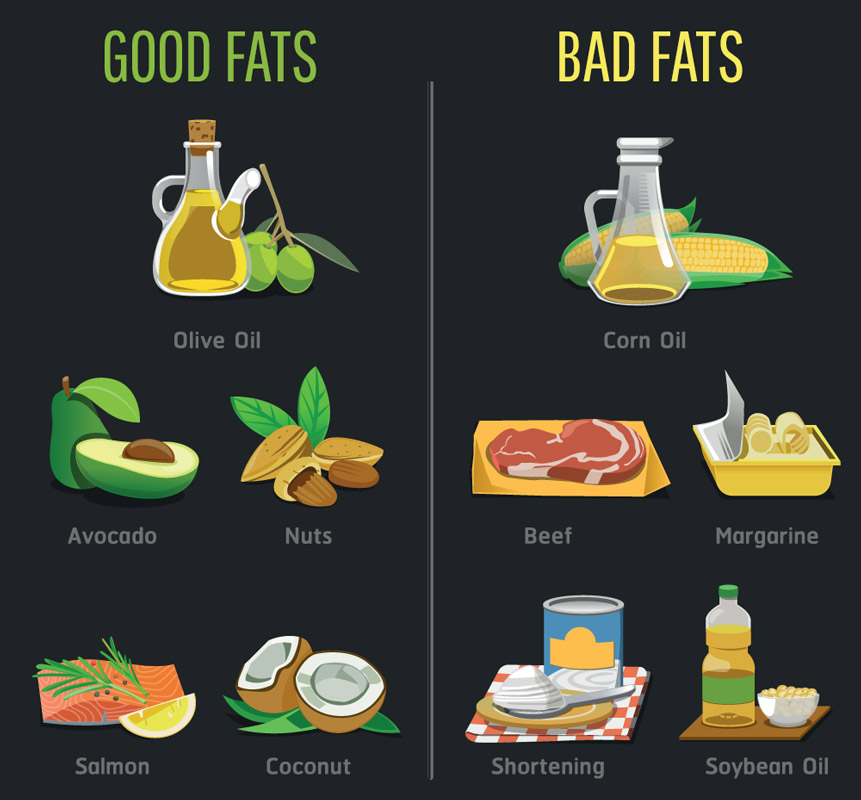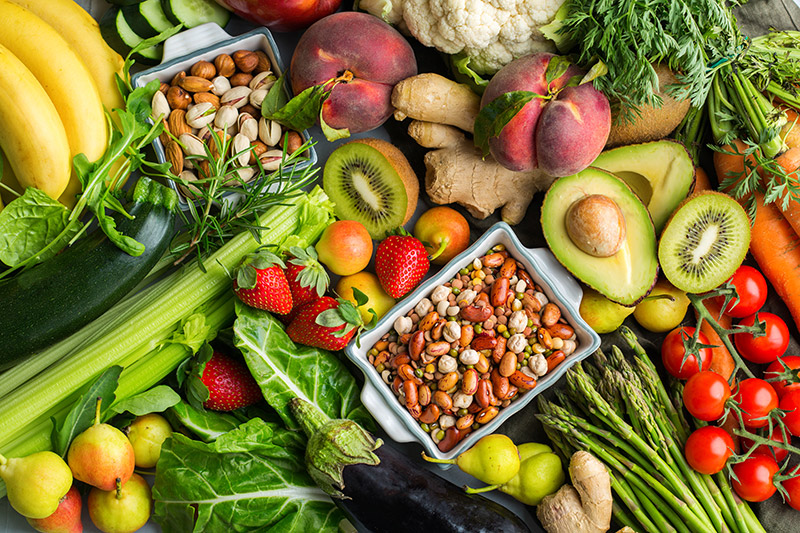- Home
- About Us
- Advanced Testing
- Nutrition & Self-Care
- Further Learning
- New Member Info
- Contact
There are an abundance of diets touted as ideal for weight loss and optimal health, but many contradict each other. The amount of information available can be confusing to sort through, especially when doctors and nutritionists cannot agree on findings and trends. Sadly, “thirty years of nutritional advice has left us fatter, sicker, and more poorly nourished.” (REF 2) So we find ourselves in a predicament about what to eat and in need of a new way of thinking about food. (REF 2)
Some eating plans are clearly better than others, but there is no one right diet for everyone. However, there are some healthy eating principles that apply to all of us . . . so let’s start by addressing what NOT to eat.
The standard American diet (SAD) is what a typical American eats. This diet is low in fruits, vegetables and fiber, and high in red or processed meat, pre-packaged foods, fried foods, refined grains, and sugary drinks and foods (often sweetened with high-fructose corn syrup).

No wonder heart disease is the number one killer in this nation. “There’s a good reason we abbreviate standard American diet to S.A.D. The standard American diet leads to standard American diseases that lead to standard American deaths.” (REF 1)
As the award-winning author Michael Pollan explains, “Since 1980, American farmers have produced an average of 600 more calories per person per day, the price of food has fallen, portion sizes have ballooned, and… we’re eating…at least 300 more calories a day than we consumed in 1985…. Nearly a quarter of these additional calories come from added sugars (and most of that in the form of high-fructose corn syrup); roughly another quarter from added fat (most of it in the form of soybean oil); 46 percent from grains (mostly refined)…. The overwhelming majority of [these added calories] supply lots of energy but very little of anything else.” So we are left with an overfed and undernourished nation of people. (REF 2)

In his book, In Defense of Food, Michael Pollan proposes a new (and very old) answer to the question of what we should eat. "Eat food. Not too much. Mostly plants." In seven words he makes a complicated topic quite simple.
Eat REAL food - anything that comes from the earth naturally. A good test is whether it will rot – if not, think twice about buying it. You will do best to shop mainly the perimeter of the supermarket and avoid the middle aisles, or better yet, buy your groceries from the local farmers market.
Get rid of processed foods (food-like substances engineered at a factory). These come in the form of pre-packaged foods and they are often laden with chemicals, hydrogenated oils, genetically modified ingredients, and high-fructose corn syrup . . . ALL things you want to avoid.
Start reading food labels and check the ingredients. Avoid buying anything that has ingredients you cannot recognize or pronounce. If you must buy packaged foods, try to select products with five ingredients or less. And buy organic as much as you can, at least the dirty dozen (those foods with the highest pesticide contamination).

In a food culture that “super sizes” everything, it can be easy to lose track of healthy portions at mealtime.
Diets like Weight Watchers focus on minimizing calories so they can help put portions back into perspective . . . but the act of constantly restricting food can contribute to hunger, cravings, and sometimes food binges (which only leads to yo-yo dieting).
As Michael Pollan points out, we need to be careful not to eat “too much.” According to Pollan, this equates to diminishing our caloric intake (as a nation) to about 66% - 80% of our current norm . . . but the TYPE of calories also matter. Refined grains and sugars will lead to insulin spikes and trigger hunger, while a diet high in protein, fiber, and healthy fats will help people feel more satiated. So when cutting calories, cutting out simple carbohydrates (starchy sugary foods) can benefit us most. As a general rule, if we focus on the quality of our calories instead of just the quantity, our metabolism, our hunger, and our weight will improve.
There is a healthy and an unhealthy way to eat low carb.
Instead of just eating foods like bacon and pork rinds dipped in pimento cheese, a healthy low-carb diet prioritizes an abundance of vegetables and includes a moderate amount of meat and healthy fats (instead of that being the main focus).

In general, fats found naturally in foods tend to be healthier - things like: olive oil, avocados, almonds, wild salmon, organic grass-fed meats, pasture-raised eggs, coconut, etc.
Fats that are chemically altered through engineering or used to cook at high temperatures tend to not be as healthy - things like: fried pork rinds, pimento cheese dip, processed bacon, cream cheese, peanut butter, corn or soybean oil, etc.
You can read more about the difference between good and bad fats HERE

A low-fat diet has not made us any healthier as a nation; it has actually made us sicker. In her book, “The Big Fat Surprise,” journalist Nina Teicholz explains the truth behind the low-fat trend, and how instead of lowering heart disease, it has led to an epidemic of obesity and diabetes.
he type and quantity of fat we consume matters. A diet high in saturated fat can increase cholesterol levels for some (thus increasing one’s risk of heart disease), so this is important to consider. About 25% of the population has an APO E 4 genotype, and due to the way their body metabolizes fat, these individuals will not respond as favorably to a high-fat diet. So there is not a black-and-white answer to the question “how much fat should we be eating?” The answer for the general population has to do more with what types of fat we should be eating; any advice beyond that needs to be personalized to each individual.

Plants are good for ALL of us - this is a truth that both the medical and health industry unanimously agree upon. There are some starchy vegetables we may do better eating in smaller portions (like corn and potatoes), but the real controversy lies over meat.
Eating meat can benefit muscle and bone health, appetite, metabolism, and iron and b12 absorption. (REF 4) However, some people are concerned that meat can increase other health risks like cancer . . . but the data is not that clear. There are many other factors (what type of meat, how was it cooked, did it have chemicals added, was it balanced with a healthy diet, etc.) that can affect the outcomes of such studies. You can read more HERE.
Choose non-processed meats (so avoid products like deli meat and hotdogs) and buy organic grass-fed meats whenever possible
Limit red meat and lean more towards meat from animals that swim or fly.
Avoid cooking meat at high temperatures, and be careful to avoid overcooking or charring meat on the grill.
Keep portion sizes of meat small (about 4 ounces, the size of your palm).
Balance meat intake with larger portions of plant-based foods that are high in fiber and antioxidants. (REF 4)
Amid all the many diet crazes out there, the Mediterranean diet consistently comes out on top.

A Mediterranean diet consists of foods like: olive oil, nuts, fruits, and vegetables, legumes, whole grains, and seafood. It focuses on fresh colorful foods and shuns heavily processed ingredients. Other foods like dairy, chicken, and eggs are eaten . . . but only occasionally and in small portions.
Studies have shown that a Mediterranean diet (which is high in antioxidants and anti-inflammatory properties) can decrease the risk of a heart attack and stroke, lessen cognitive decline, and help people maintain a healthier weight. (REF 6) This is the diet the celebrity trainer Bob Harper (from the show “The Biggest Loser”) is now following after his heart attack.
*You can read more about the Mediterranean diet Here
Eat more fruits and vegetables (aim for 7 – 10 servings a day)
Opt for whole grains instead of refined
Cook with healthy plant-based fats like olive oil instead of butter
Eat more seafood (but avoid fried foods)
Reduce red meat, keeping portions lean and small
For dairy, choose Greek yogurt or small amounts of cheese
If we nurture certain habits, we will have a better chance at successfully maintaining a healthy diet. Sometimes we have to unlearn previous habits and beliefs before we can learn new better ones.
Cook your own meals whenever you can - this way you have control over the ingredients in your food.
Avoid eating while looking at television or your computer, and eat at the table instead of in the car or on the go. These habits cause us to eat without thinking, so our brains do not register when we are full and we can easily end up eating too much.
Realize the truth about what really makes you happy – are the few seconds of flavor bliss worth it in the long run? Stop telling yourself you “deserve” certain foods when what you really deserve is a healthy heart, body, and mind.
Don’t let guilt drive your decisions (because your Southern or Italian grandmother feels “loved” when you eat her food or go back for “seconds.”) The “starving people in Ethiopia” are not any better off because you finished the food on your plate; they are helped when you donate to organizations that buy them food.
Recognize the value of taking care of your body, and that your health is the very best investment you could ever make. We all get to choose how we spend our money, and the quality of the food we eat should be a high priority on that list (surely more so than our Starbucks, sodas, alcohol, or cigarettes). If you bought a Lamborghini you would not put cheap gas in it - how much more important is the source of fuel we put in our bodies?
In the end, we will either spend a little more money on our food to stay healthy now, or more money on our doctor’s bills to treat our illnesses later. You pick.
Pay attention to portion sizes (on packages and on your plate). Eat slowly and stop when you start to feel full. Stop finishing the food on your plate just because it is there (and because that is what your mother told you to do as a child). Be particularly careful at all-you-can-eat buffets and all-inclusive dining plans on cruises and resorts where you feel like you need to get “your money’s worth.”
Enjoy meals with other people whenever you can. We experience the pleasures of eating when we slow down and pay attention to savoring our food, especially when we are sharing that joy with family and friends gathered around a table. (REF 3)
Be wary of any diet that touts itself as “the answer” for everyone. Each person’s ideal diet will vary based on several factors. For example . . .
Our genetic make-up affects how our bodies respond to different foods. The Apo E gene affects our fatty acid (cholesterol) metabolism, so this gene can offer some helpful information as to who might benefit best from a lower fat versus lower carbohydrate diet. And the haptoglobin gene can help determine which individuals are more susceptible to producing zonulin (a protein that negatively affects intestinal permeability) after eating gluten. These patients would benefit from a gluten-free diet.
Those with autoimmune disease often need to restrict certain foods from their diet that could be triggering their symptoms, particularly inflammatory foods like: gluten, dairy, soy, eggs, and sugar.
Individuals with dementia or attention issues may particularly benefit from a ketogenic diet to optimize mental function.
Patients with metabolic disorders such as: diabetes, insulin resistance, or polycystic ovarian syndrome (PCOS) need to follow a diet that is lower in carbohydrates.
*At Whole Heart Family Medicine we take into consideration all of these different factors and then specifically tailor our diet recommendations for each patient based on their unique needs.
Do something today for a better tomorrow!
Make an appointment now for advanced testing. We are here to help.
REFERENCES
1 – https://www.forksoverknives.com/standard-american-diet-sadder-than-we-thought/#gs.jg6yxe
2 – https://michaelpollan.com/reviews/a-new-way-to-think-about-eating/
3 – https://smile.amazon.com/Omnivores-Dilemma-Young-Readers/dp/1101993839/ref=sr_1_1?crid=2NN6KIU7N57NB&keywords=omnivores+dilemma+young+readers+edition&qid=1573218023&sprefix=omnivore%2Caps%2C342&sr=8-1
4 – https://www.healthline.com/nutrition/meat-good-or-bad#benefits
5 – https://www.mayoclinic.org/healthy-lifestyle/nutrition-and-healthy-eating/in-depth/mediterranean-diet/art-20047801
6 – http://www.eatingwell.com/article/290484/why-the-mediterranean-diet-is-so-healthy/